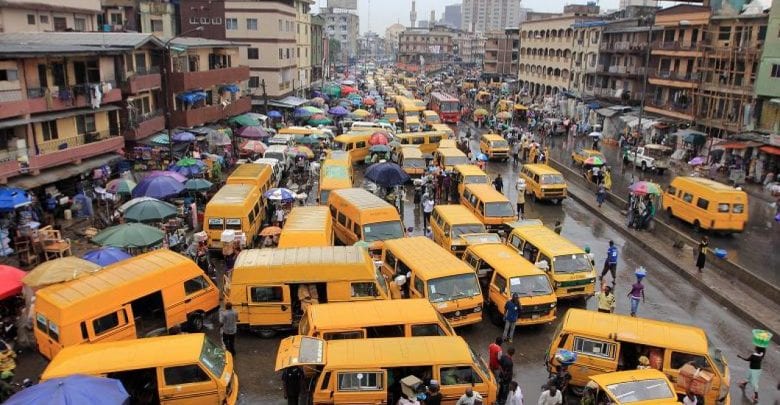
A recent report by Nigeria’s National Bureau of Statistics (NBS) has revealed an alarming escalation in transportation costs attributed to soaring fuel prices, painting a dire picture for commuters nationwide.
In the wake of President Bola Tinubu’s withdrawal of federal subsidies on petrol in May 2023, Nigeria witnessed an unprecedented surge in fuel prices, significantly impacting transportation expenses.
The latest NBS report, “Transport Fare Watch for October 2023,” unveils staggering statistics reflecting the toll of these price hikes on everyday commuting.
The average retail price for Premium Motor Spirit (PMS), commonly known as petrol, hit a shocking N630.63 per litre in October 2023, marking an overwhelming 222.92% surge compared to the previous year’s value of N195.29.
Similarly, Automotive Gas Oil (diesel) rose 25.45% year-on-year, reaching N1004.98 per litre in October 2023 from N801.09 in October 2022.
The impact has been felt nationwide, with commuters witnessing an upsurge in bus fares within cities by 75.45% and intercity travel by 53.04% compared to October 2022.
Air travel expenses have also surged by 7.62%, with the average fare for specified routes reaching a staggering N78,778.38.
Notably, the disparities in fuel prices across states and zones have exacerbated the situation. States like Zamfara, Gombe, and Borno have the highest petrol prices, while Lagos, Oyo, and Delta states experience relatively lower rates.
In addition, the North-central zone recorded the highest diesel prices compared to the North-east, which observed the lowest rates.
Kerosene, a household essential for cooking and lighting, has faced a similar trajectory. The average retail price per litre soared to N1,303.16 in October 2023, reflecting a year-on-year increase of 25.18%.
The disparities in kerosene prices across states and zones significantly impact household budgets, with Adamawa, Abia, and Abuja witnessing the highest prices.
According to experts, the projections for a shift from importation to local refining by the end of 2024, with ongoing refinery rehabilitation and the anticipated Dangote refinery launch, offer a glimmer of hope.
However, until then, the rising fuel costs continue to strain household finances and burden businesses.
